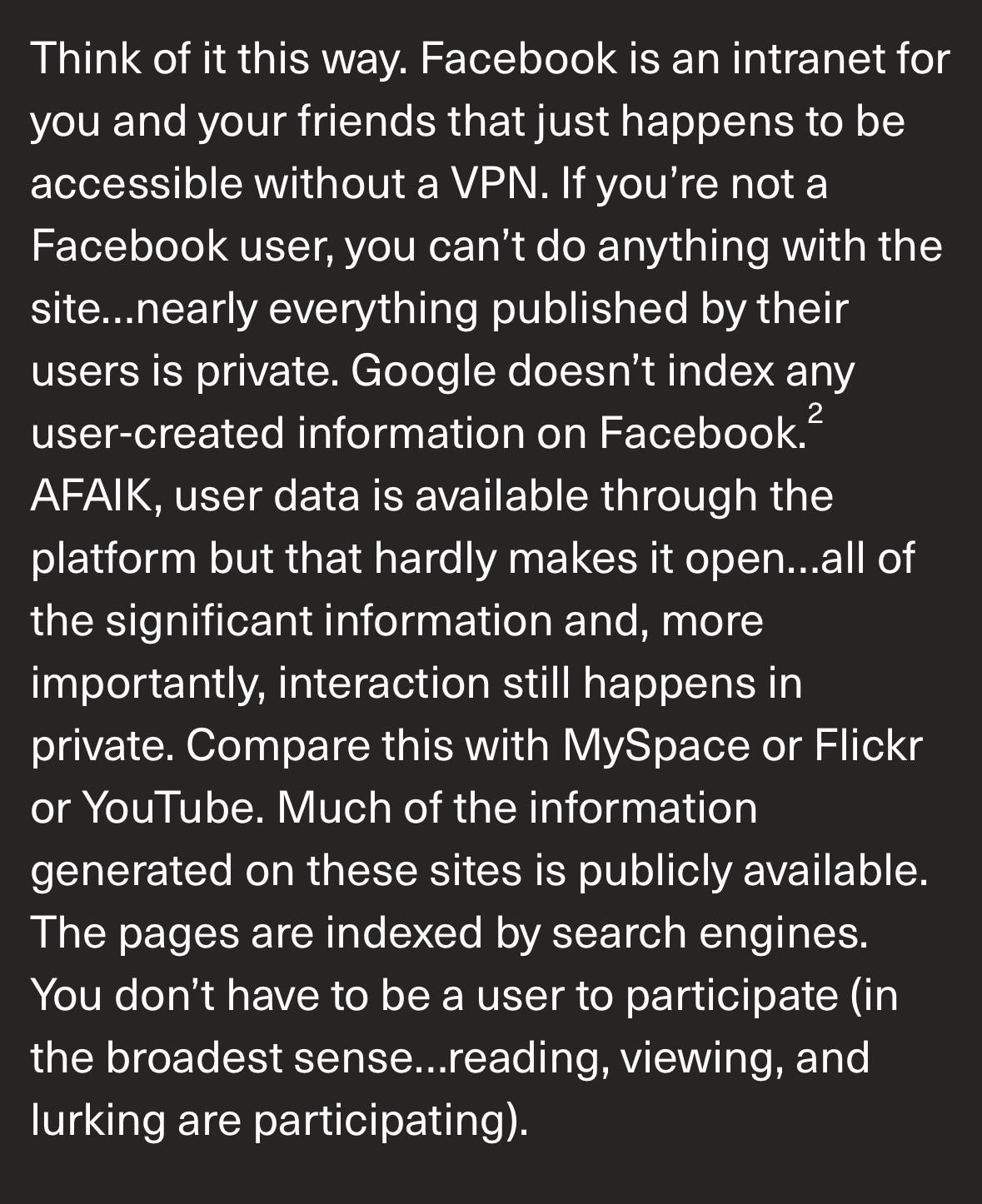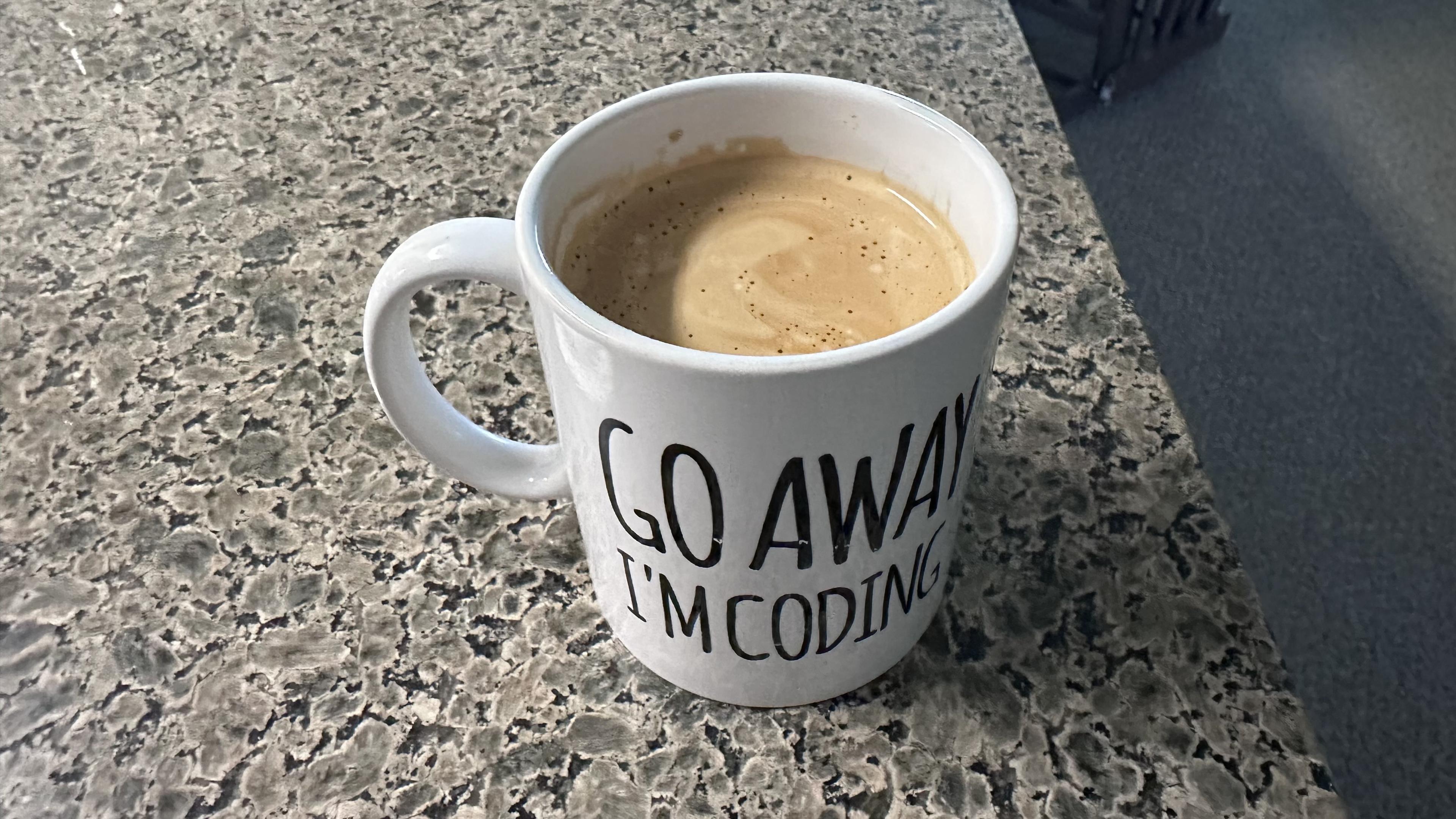> I wanted to clarify my comments about Facebook’s similarities to AOL. I don’t think Facebook is a bad company or that they won’t be successful; they seem like smart passionate people who genuinely care about making a great space for their users
No shade to Kottke but this sounds exactly like what people are saying about #Bluesky right now.


